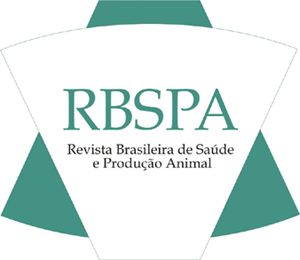This study was carried out to evaluate the effects of heterogeneity of residual variance on genetic evaluation of cattle raised on pasture from Amazônia Bioma, Brazil. Adjusted weights at weaning weight (205 days of age) were sorted in three phenotypic classes: low (less than average weight), medium (between the average and the average plus one standard deviation) and high (greater than average plus one standard deviation). There was increased of genetic additive direct and residual variances to the extent that increased phenotypic classes. The heritabilities for low, medium and high phenotypic classes were 0.27, 0.33 and 0.26, respectively. These estimates suggest that mass selection could result in genetic gain on breeding program that use weaning weight as a selection criteria. Genetic correlations between the low and medium, low and high, and medium and high phenotypic classes were 0.82, 0.35 and 0.72, respectively. The estimate of correlation of the breeding values of sire shown effect of the heterogeneity of phenotypic variance on the prediction of animals breeding values. There was a major variability for the breeding values of sires at high phenotype class. Thus, we suggested the identification and selection of sires with the highest breeding values for weaning weight, according with environment in which these animals are being raised.
breeding value; beef cattle; cluster; correlation; heritability
